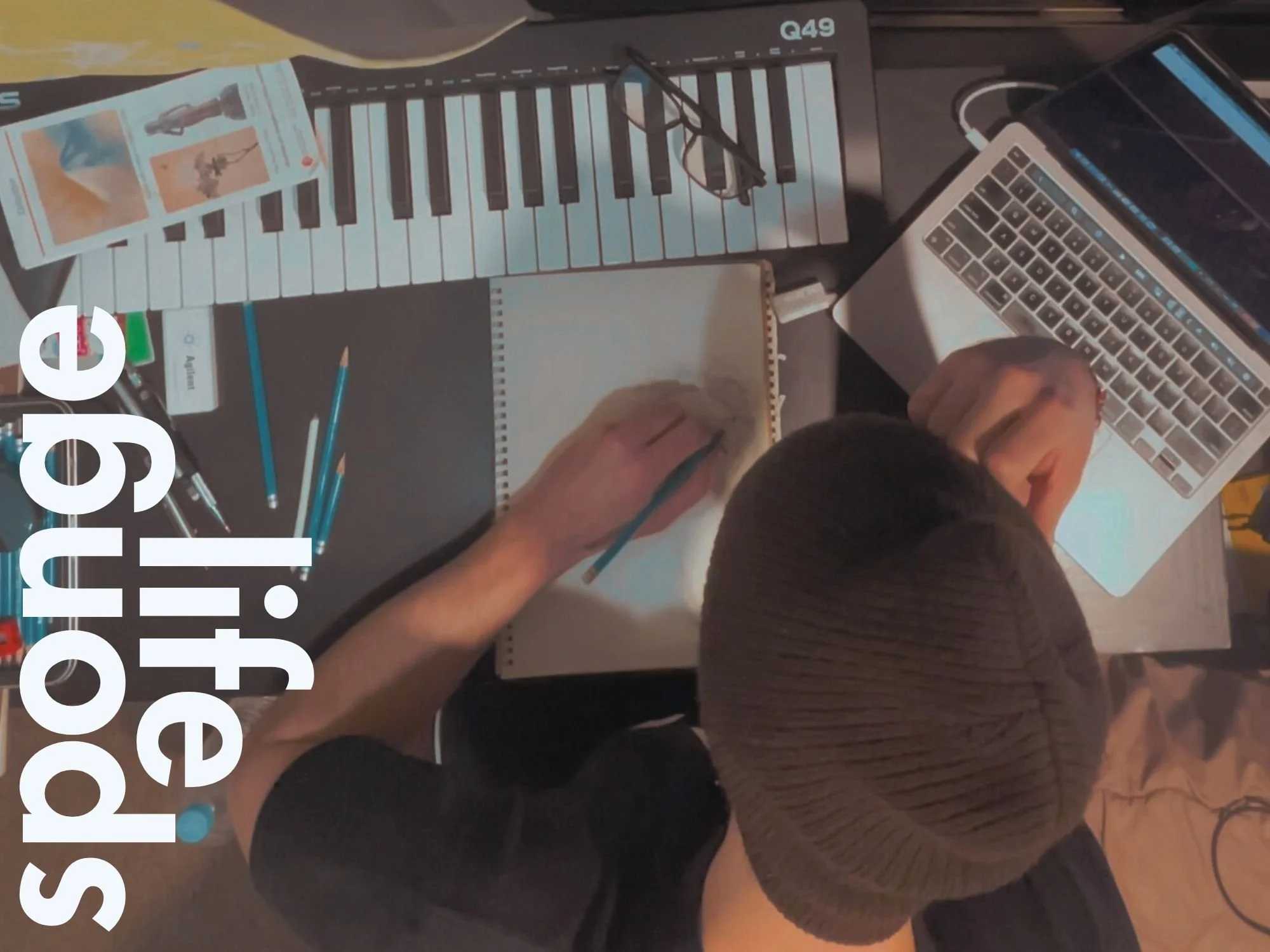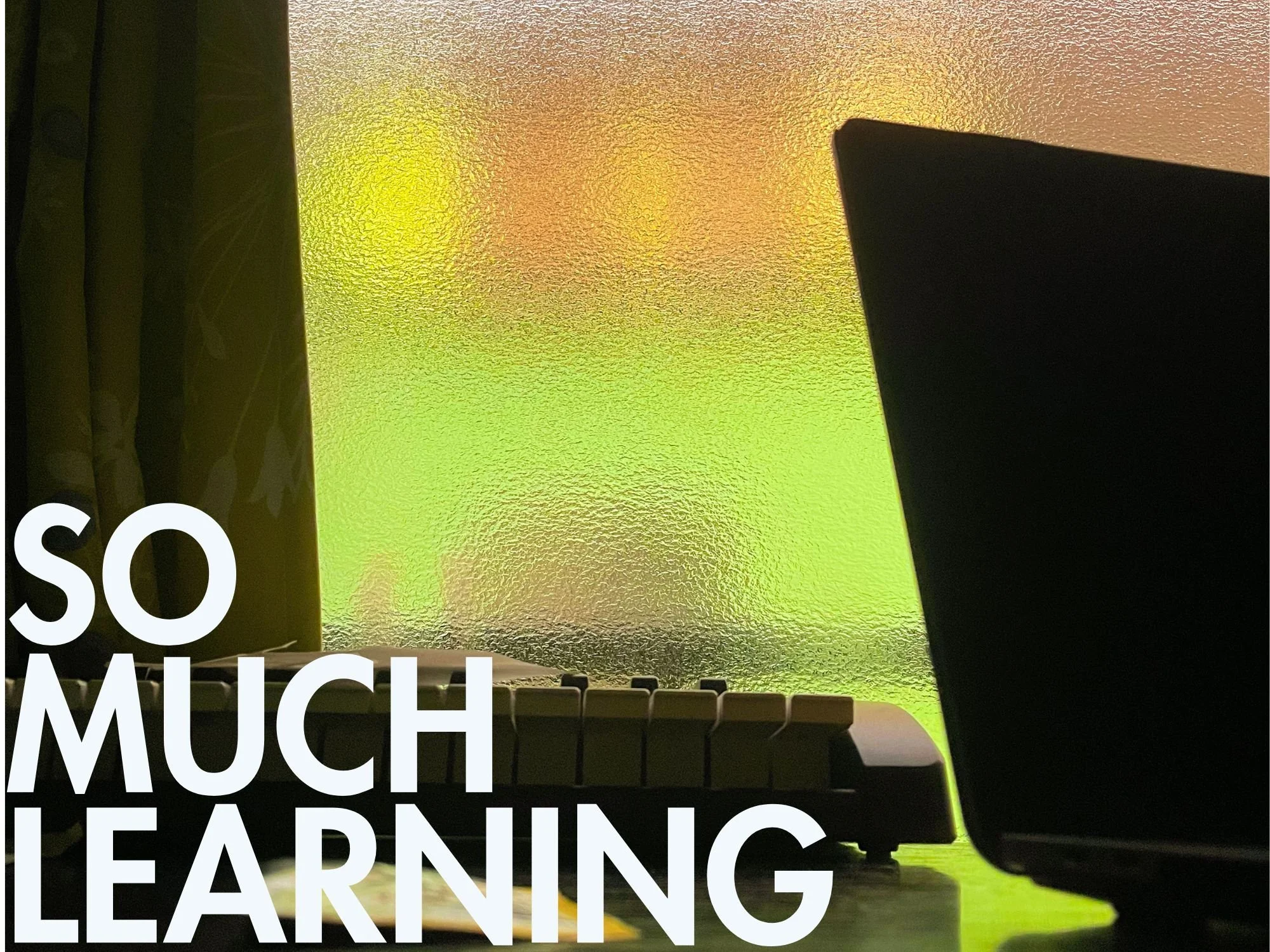A Learner’s Mindset (for a humble adventurous life)
The world is a library. An exciting mostly free library. And I’m intent on reading as many of its books as I possibly can.
A learner’s mindset is the path to a more creative and adventurous—yet humble—life. It might sound like a random claim, but it’s how I truly see learning.
This post is meant to inspire more curiosity and an approach to learning that feels artsy, aesthetic and grand.
When we learn, we grow. When we grow, we inspire. When we inspire, they learn.
At least, that’s the hope—“be the change…”, as they say.
Here’s my take on how to be a learner.
Table of Contents
What’s A Learner’s Mindset?
A learner’s mindset is seeing, experiencing and unpacking your world from a curious research-esque perspective.
The learner doesn’t judge and chooses humility over arrogance.
Because the learner doesn’t obsess with what they think they already know. They realize everything they don’t.
It’s the Dunning-Kruger effect in a way.
A beginner has an initial boost in confidence after starting a new learning journey. But the more they study that subject, the more they realize what they don’t know. So their confidence dips and only grows slowly as they collect more expertise.
It’s ironic…the more knowledgeable you become, the more doubts you’re likely to have.
So if you are doubting yourself, it’s probably because you’re smarter and farther along than you give yourself credit for.
Here’s a chart:
A Learner’s Mindset Makes for An Adventurous, Creative, Humble Life (here’s why)
“Adventures are the best way to learn...”
Adventure teaches you about the world and about yourself.
Every great explorer, artist and thinker were obsessed with learning—learning what’s on the other side of the known.
The current state you find yourself in is the known. It’s familiar and predictable. Maybe even boring.
Now the unknown is the place that excites (or scares) you. It’s where growth and learning thrive. It’s where adventure, creativity and humility come alive.
Too bold? Maybe.
Accurate? Totally.
Every great adventure I’ve been on (literally or creatively) came with a serious learning curve. And without the right mindset, I would’ve been scared away.
And I would’ve missed out on the adventure.
So embrace the learning. And you’ll be setting yourself up for a seriously adventurous life (if you so choose it).
How to Be A Learner (7 tips)
1. Hang Around Who Push You
In many ways, I am as good as the company I keep.
I’ve recently started expanding my network of creative friends—artists, musicians, videographers, writers, poets—and it has definitely pushed me in my own creative life.
It’s forced me to show up for myself more and improve. Aka, I’m prioritizing learning a variety of new skills because I realize there are obvious skill gaps preventing me from reaching my creative goals.
Learning is hard when there’s little motivation and your inner circle doesn’t understand or reallllly care what you’re building.
The right group will push you to learn, grow and evolve. And not in a competitive way, but in a supportive inspirational way.
2. Study Sh*t You Actually Like
I mean, this one is pretty obvious. But if you wanna be better learner, learn about things you actually enjoy.
Guilty pleasures? Check.
Deep esoteric subjects that confuse people? Check.
Random topics that have nothing to do with your career? Check.
If you enjoy it or feel drawn to it, it’s worth your time. It’s that simple. No new knowledge is wasted effort.
Explore more:
➤ Headway App Review
3. Learn Outside Your Periphery
If studying what you actually enjoy is logical, does that make studying the periphery (what’s not in your interest field) illogical?
No way.
Studying random topics outside your comfort zone expands your current knowledge base in unpredictable, often exciting ways.
It’s a fantastic way to become a better learner.
For example, I was studying physics a couple years ago…but for no particular reason (except pure curiosity).
Do I use this knowledge? No.
Am I confident in the subject? Hell no.
But did I expand my perception of the world? Totally.
Not everything you learn needs to have a purpose. And sometimes, there is a purpose…it just doesn’t reveal itself until years later, like serendipity (or Steve Jobs’ Stanford speech on dots connecting).
4. Go Travel
“Travel has a way of stretching the mind. The stretch comes not from travel’s immediate rewards, the inevitable myriad new sights, smells and sounds, but with experiencing firsthand how others do differently what we believed to be the right and only way”
You should travel, especially if you want to sharpen your learner’s mindset. It’s the best education out there.
Travel—particularly solo travel—forces you to become a student.
New cultures, different ways of living…of seeing…experiencing. You suddenly realize the way you’ve been performing life isn’t the only one and surely isn’t the ultimate one. Suddenly, life feels less dogmatic.
Suddenly (if you’re a traveler and not a tourist), you’re learning.
Explore more:
➤ How to Travel More
5. Make Learning Aesthetic
Aesthetic?
Oh yea, aesthetic.
When I say aesthetic, I’m really talking about the vibe and lifestyle of learning. I like to imagine it as being more artsy than studious.
Imagine you’re in a Woody Allen movie. Or the Dead Poet’s Society. Or Goodwill Hunting. Or Gilmore Girls.
Whatever character or story resonates with you.
There’s something aesthetic and attractive about cinema’s portrayal of the learner. The book-lover spending Friday nights at an old library or cafe reading esoteric topics?
Aesthetic.
This definitely supports my whole philosophy on living a more lofi lifestyle. But honestly, embodying an aesthetic learner persona is just motivating.
That’s the power of an alter ego.
6. Listening > Speaking
One of my core pillars on how to life is to listen more than you speak.
When we speak, we’re just repeating what we (think we) already know. But when we listen, we light learn something new.
Everyone knows something I do not. Even a small child has a perspective or experience that I just don’t understand.
This perspective keeps me in a learner’s mindset and open to new ideas (no matter where they come from). Of course, not everything will be true and requires unpacking. But the point of this post isn’t to show you how to analyze new information.
That’s critical thinking and for another day.
7. Be An Active Learner
“Never let formal education get in the way of your learning.”
You can read a whole library. But until you get out of the armchair and into the frying pan, you’ll never experience true learning.
Be an active learner. Apply what you know. And given the choice, go for experience over study.
Apply the principle you learn in between pages in a real world context. Have creative projects. Make something. Do something. Talk about it and fail gloriously.
That’s how you reach learning mastery. At least, that’s my current take on things.
So, how do you learn?
Later ✌️
Want More? Nice. Here’s More.






